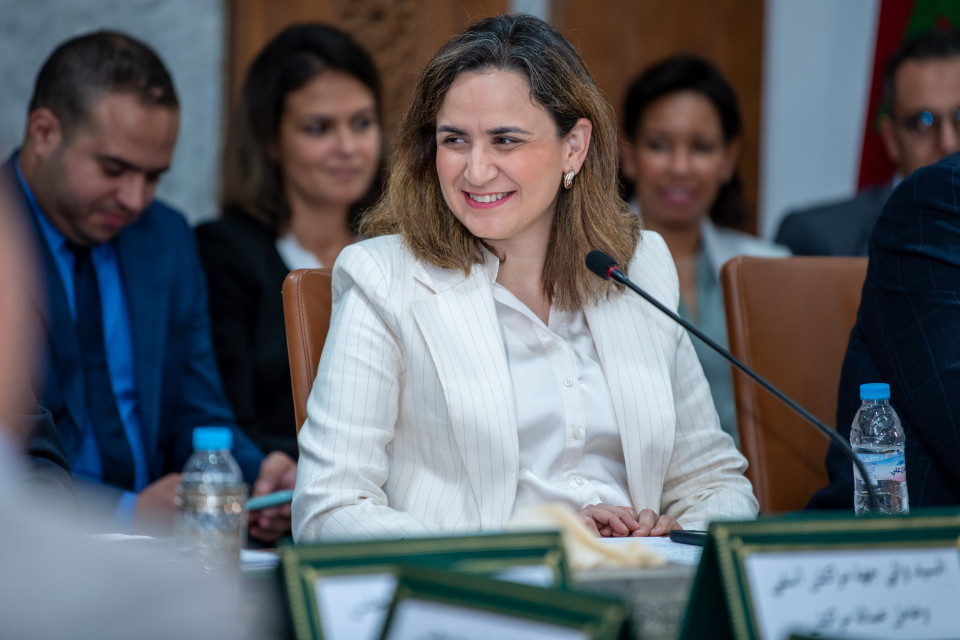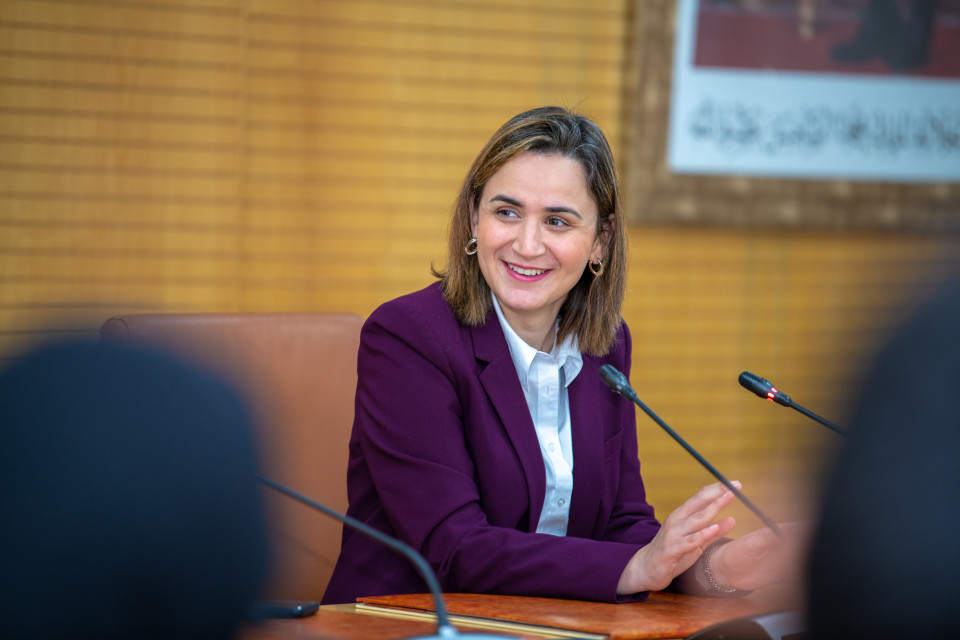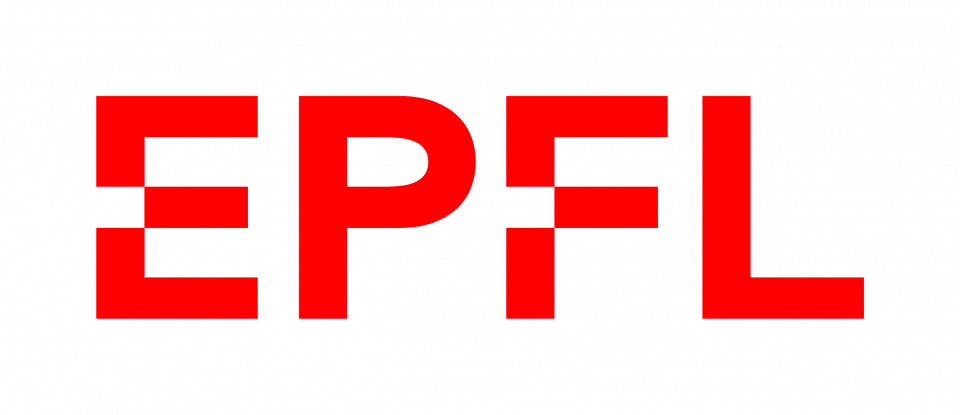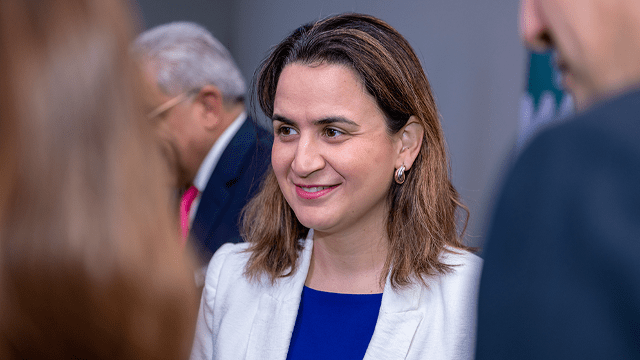Ghita Mezzour has been Morocco’s Minister Delegate in Charge of Digital Transition and Administrative Reform since October 2021. In that role, she is intent on furthering her career-long goal of using digital technology to make a positive impact on society. She spoke with Dimensions about her career path and the ways in which digital technology can support her country’s development.
You grew up in Morocco. Why did you decide to study at EPFL?
I heard about EPFL from my personal contacts. Several people I knew graduated from the School and encouraged me to apply, especially since it was expanding rapidly at the time. So I took a chance and enrolled in a program in communication systems. Studying abroad was an extremely enriching experience for me, in terms not just of the things I learned but also of the people I met. It gave me exposure to a completely different environment from what I’d known previously.
You were a professor at the International University of Rabat (UIR) and started your own digital-technology business before being appointed Minister Delegate in October 2021, heading up an entirely new ministry for Morocco. Was it a goal of yours to go into politics?
My appointment reflects the government’s desire to incorporate greater diversity in terms of both age and gender. But for me personally, no, politics wasn’t necessarily a goal of mine. My ambition has always been to have a direct impact on improving people’s lives by combining my engineering background with advances in digital technology to support social and economic development. That’s what I did as a professor at UIR, for example, where I used an artificial intelligence (AI) program to study the gap between the education students received and the skills needed in the job market, in order to improve our graduates’ employment prospects. That’s also what I did with the company I created, which supplied data-driven AI software to enhance decision-making at government agencies and international organizations. Now that’s what I’m doing in my role as Minister Delegate. My guiding principle hasn’t changed over the years – it’s just how I go about it that has varied.
Morocco is already one of the best business destinations in Africa, but we want to make the country even more business-friendly by streamlining the administrative procedures involved. - Ghita Mezzour
Your ministry introduced the MoroccoTech program in early 2022 to make the country more attractive as an investment destination and speed the digital transition. What exactly does this program entail?
Our first goal with MoroccoTech is to showcase our country’s digital initiatives. A lot is going on in this area but the initiatives are fragmented and aren’t getting the visibility they deserve. Morocco is a hotbed of young talent in science, technology, engineering and mathematics. The skills we possess are totally on par with those in other countries – just look at the Morocco team’s third-place victory in the recent International Olympiad in Informatics. I would also point to our expertise in telecommunications systems and the fact that we’re one of the top three countries in Africa for IT outsourcing, and to the positive feedback we’ve gotten from many business investors.
Our second goal with MoroccoTech is to unite our entire R&D ecosystem around efforts to drive the digital transition. We’re in the process of finalizing Morocco’s 2030 digital strategy – planning beyond 2030 wouldn’t make much sense given how fast digital technology changes. One priority under the new strategy is to attract new business investors by showing that we have all the skills and capacity needed for companies to succeed. For that, we’ll need to expand our support programs for startups and reinforce our startup ecosystem in general.
You have an academic background. What role do you feel university research and education can play in Morocco’s digital transition?
Universities have a vital role to play since they’re where next-generation technology is being developed, and they often serve as incubators for high-tech startups. Of course, universities also have a key role in educating tomorrow’s youth. There’s strong demand in the job market for engineers with skills in coding, software development, artificial intelligence, data processing and cybersecurity. Right now Morocco produces around 15,000–20,000 digital graduates every year. Our target is to increase that figure by a factor of four or five.

We hear a lot about the digital divide. How do you plan to address that at your ministry?
Morocco has one of the three best telecom networks in Africa, and 93% of our population has internet coverage – a very high rate for the continent. But we don’t intend to stop there. We want to extend this coverage to even the most remote areas and make computer equipment more affordable for everyone in the country. Smartphones in particular are often too expensive relative to average household incomes. We’re thinking about different ways we can assist those who aren’t currently able to purchase such devices. Morocco’s ministry of education is also working to make sure schools can get the computer equipment they need.
Another issue covered by your ministry is administration reform. You recently increased the minimum wage for government workers and introduced 15 days of paternity leave. What other reforms do you have planned?
These improved benefits for government workers were essential. The paternity leave actually marks a major step forward for women, since it will help balance out parental responsibilities when children are born.
The government decided to group administration reform together with the digital transition since it believes digital technology can help drive the reforms needed. For instance, we’ve made corporate investment a priority.
I’ve kept in close touch with the School since returning to Morocco through our local EPFL Alumni chapter. Another thing I appreciated is that EPFL showed me how important diversity is, and that people with very different backgrounds and personalities can work together towards a common goal. - Ghita Mezzour
One aspect of your role as Minister Delegate is public relations, including relations with the press. Is that something you enjoy?
It’s something I already had experience with, because as a researcher I engaged actively with the public. My aim has always been to make a positive societal impact, which meant I wasn’t content with just publishing journal articles. I got out and met with decision-makers both at universities and in industry, explaining how my findings could be applied to help them meet their goals. I also spoke with journalists to boost the visibility of my research.
Now, as Minister Delegate, speaking with citizens is central to my role. I spend a lot of time consulting with people across the country to get their input. We work for the citizens of Morocco, so it’s essential to speak with them and be transparent about what we do. But beyond that, the contact with the public is a part of my job I really enjoy.

You’ve spoken a lot about your desire to have a positive impact on society. Where does that drive come from?
It’s a highly conscious personal choice. When I was younger, I spent a lot of time thinking about my values and what I wanted to do both in my life and in my career. I realized it was important for me to make a real difference in people’s lives. And this desire only grew stronger as my career progressed and I met colleagues with similar dreams of making the world a better place. My country is a work in progress, and it has huge potential in terms of its society and economy.
The current administration in Morocco will be in office for another four years. Afterwards, do you plan to stay in politics or would you like to return to academia or R&D?
For now I’m taking things one step at a time. I’ll still be Minister Delegate for a few more years, then we’ll see what happens. One thing is clear though: regardless of where I am, I’ll strive to make a large-scale, positive impact on Morocco’s society and economy.
What memories do you have of your time at EPFL?
I remember having a really heavy workload, spending Sundays at the library and sometimes studying until midnight. But I was eager to learn new things and expand my horizons, and so EPFL was a great fit. I tried to take advantage of every minute – I would even visit my professors between classes to ask them questions. Looking back, it seems I monopolized their coffee breaks! Today I’m proud to say I graduated from EPFL.
So my message to today’s youth would be: “think big.” - Ghita Mezzour
Is there a message you’d like to give to today’s youth?
I speak frequently with high-school students, including some from poor neighborhoods. I tell them about my experience and encourage them to be a force for change. If you think small, you’ll only accomplish small things. But Morocco offers plenty of opportunity for those who work hard, and I think it’s good to show students that the right skills and dedication can pay off. I really saw that when I was in the US for my PhD. Everyone can make a difference – you just have to go for it.
BIO
1985 - Born in Rabat
2008 - Graduates from EPFL with a Master’s in Communication Systems
2015 - Obtains a PhD from Carnegie Mellon University
2018 - Founds DASEC, an artificial intelligence company
2019 - Appointed associate professor at the International University of Rabat
2021 - Appointed Morocco’s Minister Delegate in Charge of Digital Transition and Administrative Reform

Comments0
Please log in to see or add a comment
Suggested Articles



